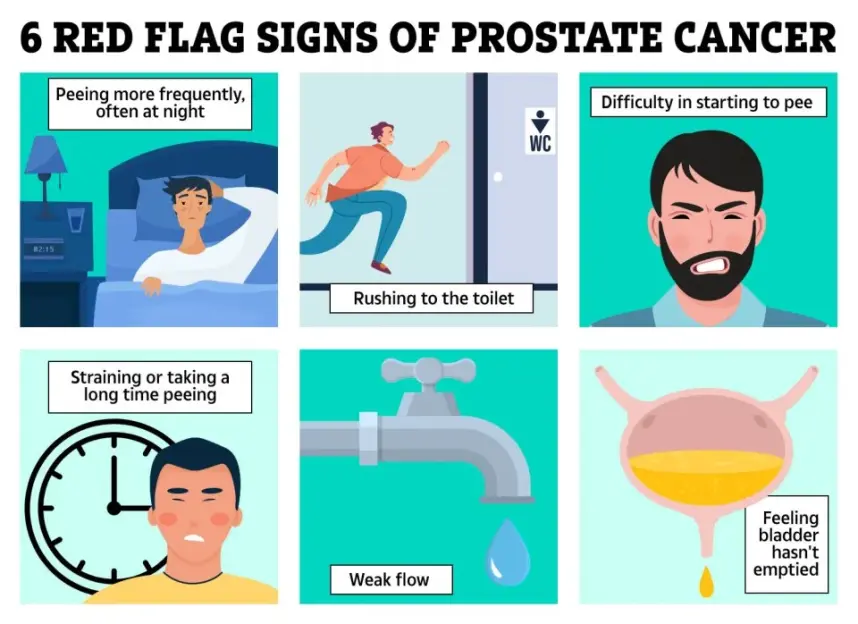Table of Contents
David Cameron has encouraged men to undergo screenings for prostate cancer after disclosing that he was diagnosed with the disease last year.
The former Prime Minister, 59, was prompted by his wife, Samantha, to get blood tests and is now cancer-free.
 David Cameron shared his prostate cancer diagnosis from last yearCredit: Getty
David Cameron shared his prostate cancer diagnosis from last yearCredit: Getty
 Cameron’s wife, Samantha, urged him to request a PSA blood testCredit: Getty
Cameron’s wife, Samantha, urged him to request a PSA blood testCredit: Getty

This decision followed a conversation they had while listening to an interview with Soho House founder Nick Jones, who spoke about his own diagnosis, as reported by The Times.
Prostate cancer is currently the most prevalent type of tumor in men, following a rise in diagnoses after the pandemic.
NHS statistics indicate that 55,033 men were diagnosed with prostate cancer in 2023, compared to 47,526 women with breast cancer, which is the second most common.
However, there is no universal screening for prostate cancer provided by the NHS, a change that Lord Cameron advocates for.
Men exhibiting symptoms are typically advised to undergo a PSA blood test for assessment.
Those aged 50 and above can request this test from their doctors, even if they have no symptoms, but it is not routinely offered.
Early detection of prostate cancer is crucial, as it significantly improves treatment outcomes.
Therefore, it is vital for men to be aware of what symptoms to monitor.
The risk of developing the disease increases after the age of 50.
Additionally, black men face double the risk, so they are advised to begin screenings at age 45. The risk also doubles if a father or brother has been diagnosed with prostate cancer.
Some symptoms may emerge when the tumor size exerts pressure on the urethra—the tube through which urine passes.
When this occurs, individuals may experience:
- Increased frequency of urination, particularly at night
- Urgency to reach the toilet
- Difficulty initiating urination
- Weak urine flow
- Straining or prolonged urination
- Feeling as if the bladder has not completely emptied
If the disease metastasizes to other areas of the body, known as advanced or metastatic prostate cancer, it may lead to additional symptoms, including:
- Persistent pain that does not alleviate with rest
- Unexplained weight loss

If you suspect you may have prostate cancer or are concerned about your risk, consult your doctor.
You may be eligible for a PSA blood test, which measures the level of prostate-specific antigen in your blood and can help identify an enlarged prostate or prostate cancer.
These tests are not routinely provided by the NHS, but they may be offered if a doctor suspects symptoms indicative of prostate cancer.
All men aged 50 and older can request a PSA test from their GP, regardless of whether they have symptoms.
One in Eight Men Will Develop Prostate Cancer
The likelihood of developing prostate cancer is influenced by numerous factors. Here are some key statistics about the disease and its impact on men:
- One in eight men will receive a prostate cancer diagnosis in their lifetime.
- It ranks as the fourth most common cancer globally and is the most prevalent among men.
- Approximately 55,000 new cases are diagnosed annually in the UK, with 1.4 million worldwide.
- About 12,000 individuals die from prostate cancer each year in the UK, and nearly 400,000 globally.
- Prostate cancer accounts for 28% of all new cancer cases in men in the UK, and 14% of all new cases among both men and women combined.
- Survival rates for prostate cancer have tripled in the last 50 years in the UK.
- More than three-quarters (78%) of patients survive for 10 years or more.
- Approximately 490,000 men are living with and beyond prostate cancer in the UK.
- The






